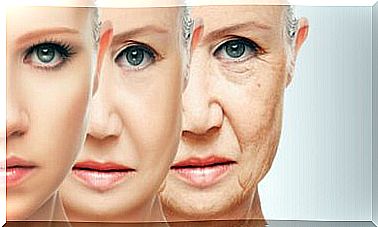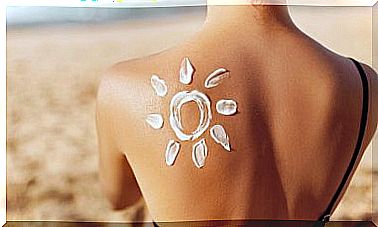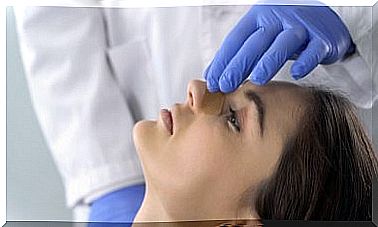6 Myths About Acne That Will Not Help You Overcome It
A lot is said about acne and the options to combat it, from which a number of myths emerge. If we avoid the practices associated with these myths, we can overcome this condition more quickly.
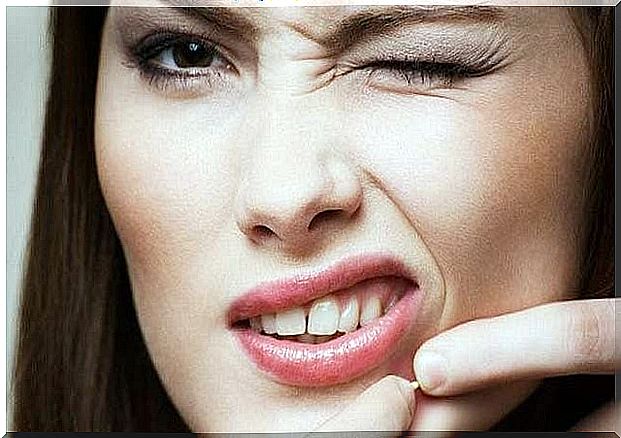
There are a number of myths about acne that will not help you overcome it if you continue to believe in them. And, when it comes to this issue, there are many speculations that often cause a lot of confusion in people.
To help you, here are the most common myths about acne and why they are misconceptions that you should discard as soon as possible.
Some myths about acne
Much is said about acne, but the truth is that there are a number of false beliefs around it that if you accept them as true, it will take you much longer to overcome this annoying condition.
1. Food does not influence the appearance of acne

This is a myth that arose as a result of an old study that claimed that there was no relationship between diet and acne. But science has been in charge of proving otherwise.
Food does affect the appearance of acne. Substances like sugar stimulate insulin production, and too much insulin causes acne.
Thus, it is best to avoid foods with high amounts of sugar. These foods include white bread, soft drinks, sweets, and alcohol (specifically beer).
Acne can also appear due to the hormones contained in milk, since these increase the production of fat. Excess oil clogs pores and causes acne.
It is recommended that you eat foods that keep your skin healthy. For example, you can choose foods with a low glycemic index.
Some of these foods are those made with whole wheat, cashews, cauliflower, and cucumbers. Foods rich in zinc are also great allies against acne, such as eggs, meat, mushrooms, fish and shellfish.
Likewise, foods that contain vitamins are recommended, so carrots, cabbage and spinach should be included in the daily diet.
2. Tobacco causes acne
There are people who believe that smoking causes acne. Although it is true that smoking is a harmful habit, it does not affect the appearance of acne. What is certain is that smoking damages the regeneration of the skin, since the pimples heal more slowly.
If you stop smoking, the oxygen flow to the skin will be greater and, therefore, the recovery process will also be faster.
3. Cosmetics damage the skin and cause acne
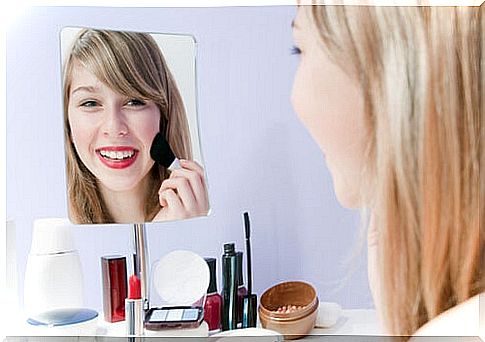
Not all cosmetics harm the skin. In the case of skin prone to acne, it is best to use those that are labeled as non-comedogenic. These products are specially made for skin with acne.
On the other hand, it is essential not to use cosmetic products that contain oils and alcohols. Products that contain alcohol overly dry the skin, cause irritation and cause acne.
Similarly, cosmetic products with oils make skin oilier and clog pores. Therefore, before buying cosmetics, it is very important that you look at its composition.
It is recommended that the composition of the cosmetics contain aloe, retinol and peptide 10. These components improve the condition of the skin and promote the cure of acne, in addition to stimulating the production of collagen.
4. Stress causes acne
This is another of the great myths about acne. Stress is not responsible for the appearance of new pimples. Although if you already have acne, it can make the condition worse, especially if you touch the pimples as a result of stress. In this case, the recovery will be slower.
5. Acne disappears with frequent cleaning
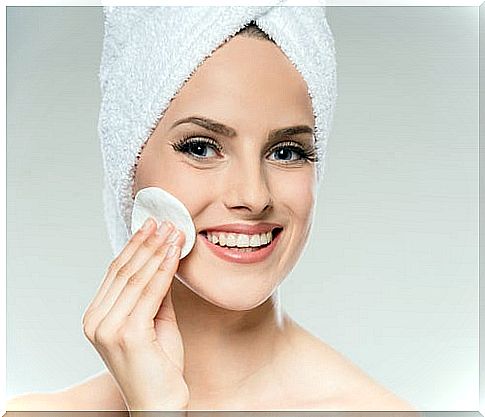
The fact that you wash your face frequently will not make the acne go away, at least if this is the only thing you do about it. Acne, including blackheads, is caused not by dirt but by clogged pores due to excess oil.
Avoid cleaning your face too often, as it can further irritate your skin. This is because sponges and washing brushes can damage the skin.
6. Toothpaste is good for fighting acne
The composition of the toothpaste can dry out acne, but it can also lead to irritation and rashes. Therefore, if you have pimples it is better that you opt for a product specially created to treat acne that contains benzoyl peroxide.
Conclution
In short, avoid the practices associated with these six myths about acne. With the help of your dermatologist and the necessary daily care for your case, you will see how your skin begins to improve in terms of this uncomfortable condition.
